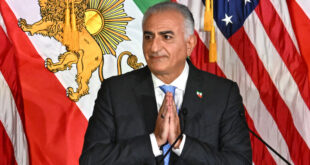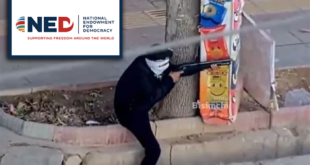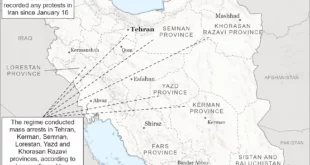 TEHRAN (Fars News Agency)- Iraq’s National Security Advisor called on Persian Gulf states to form a regional security pact, which would include Iran.
TEHRAN (Fars News Agency)- Iraq’s National Security Advisor called on Persian Gulf states to form a regional security pact, which would include Iran.
“Iraq is looking seriously to call for a regional security pact like the good old (1954 anti-Soviet alliance) Baghdad Pact or a NATO-style pact, with a set agenda: counter terrorism, counter narcotics, counter religious extremism and counter sectarianism,” he told delegates at a security conference held in the Bahraini capital Manama.
The Iraqi official said security in the region was “indivisible. You cannot stabilize Iraq and destabilize Iran, for example.”
Iraqi Vice President Tariq al-Hashimi meanwhile agreed that Iran should be included in any regional security arrangement.
US Defense Secretary Robert Gates had told participants on Saturday that Washington saw Tehran’s foreign policies as a threat to the Middle East and all countries within the range of the missiles he said it was developing.
Tehran strongly rejected the comments by Gates, and stressed that Washington could not affect relations among Middle-Eastern countries.
Iran said such remarks amount to interference in the internal affairs of other countries, and are aimed at disrupting the unity of the Middle Eastern region.
Al-Rubaie warned Washington that a strategy of aligning its Sunni Persian Gulf allies against Iran would only further exacerbate tensions in the region.
“The United States, until they seriously engage with Iran … the long-term regional security will be in doubt,” he said.
Elsewhere, in a strongly-worded address, Rubaie complained of a Saudi proxy conflict raging in Iraq, saying, “Some of the regional countries are tempted to meddle in Iraqi internal affairs… Some… are helping in fuelling the sectarian conflicts and maintaining the political stagnation in my country.”
But he pointed out that Baghdad’s engagement with neighboring countries had “encouraged Saudi Arabia to apply effective measures on the flow of Saudi young men, so-called jihadists (holy warriors), to come to Iraq.
“(It) also has encouraged Saudi Arabia to apply a tightened control on the flow of funds coming to the jihadists in Iraq.”
Rubaie’s comments did not go unnoticed by the head of the Saudi delegation, who rejected the claim that the kingdom was competing with Tehran’s influence in Iraq.
“We do not compete with anyone, except for good and unity, mainly when it concerns a brotherly country (Iraq) that is a friend and a neighbor,” said Prince Faisal bin Abdullah al-Saud, the deputy chief of Saudi General Intelligence.
 Eurasia Press & News
Eurasia Press & News



